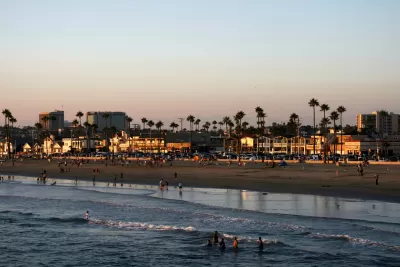A combination of factors including a lengthy appeals process and the cost of construction have led to huge disparities in the number of units allocated to each community.

A report from California's state auditor's office highlighted the disparity in affordable housing requirements for different cities, calling the state's approach ineffective and suggesting that the state "improve its statewide housing plan, harmonize its funding programs, and strengthen its oversight of local jurisdictions."
In the eight years leading up to 2021, California "allocated the city of Newport Beach a total of two units of affordable housing," reports Nigel Duara for Cal Matters. Lake Forest, a city of comparable size and population, was allocated 1,097 units. In the same amount of time, Beverly Hills was allocated three units, while Coachella was allocated 2,614. Because local jurisdictions can lobby to change their allocation during the planning stages, "rich cities have been able to build far less affordable housing units than their inland and less-wealthy counterparts."
Regional housing commissions are now using a new allocation process aimed at more equitably distributing housing units. In the most recent cycle of affordable housing allocation, Newport Beach received 4,834 units. Proponents for revised standards argue that despite high density and land costs, there is a strong need for affordable housing in central areas near transit and jobs. "The new formula skews toward more urban, with a focus on proximity to public transit — also part of a climate goal." Cities like Newport Beach have already started the appeals process.
FULL STORY: Newport Beach was supposed to build 2 affordable units in 8 years — why so little?

Trump Administration Could Effectively End Housing Voucher Program
Federal officials are eyeing major cuts to the Section 8 program that helps millions of low-income households pay rent.

Planetizen Federal Action Tracker
A weekly monitor of how Trump’s orders and actions are impacting planners and planning in America.

Ken Jennings Launches Transit Web Series
The Jeopardy champ wants you to ride public transit.

Washington Legislature Passes Rent Increase Cap
A bill that caps rent increases at 7 percent plus inflation is headed to the governor’s desk.

From Planning to Action: How LA County Is Rethinking Climate Resilience
Chief Sustainability Officer Rita Kampalath outlines the County’s shift from planning to implementation in its climate resilience efforts, emphasizing cross-departmental coordination, updated recovery strategies, and the need for flexible funding.

New Mexico Aging Department Commits to Helping Seniors Age ‘In Place’ and ‘Autonomously’ in New Draft Plan
As New Mexico’s population of seniors continues to grow, the state’s aging department is proposing expanded initiatives to help seniors maintain their autonomy while also supporting family caregivers.
Urban Design for Planners 1: Software Tools
This six-course series explores essential urban design concepts using open source software and equips planners with the tools they need to participate fully in the urban design process.
Planning for Universal Design
Learn the tools for implementing Universal Design in planning regulations.
Heyer Gruel & Associates PA
Ada County Highway District
Institute for Housing and Urban Development Studies (IHS)
City of Grandview
Harvard GSD Executive Education
Toledo-Lucas County Plan Commissions
Salt Lake City
NYU Wagner Graduate School of Public Service





























